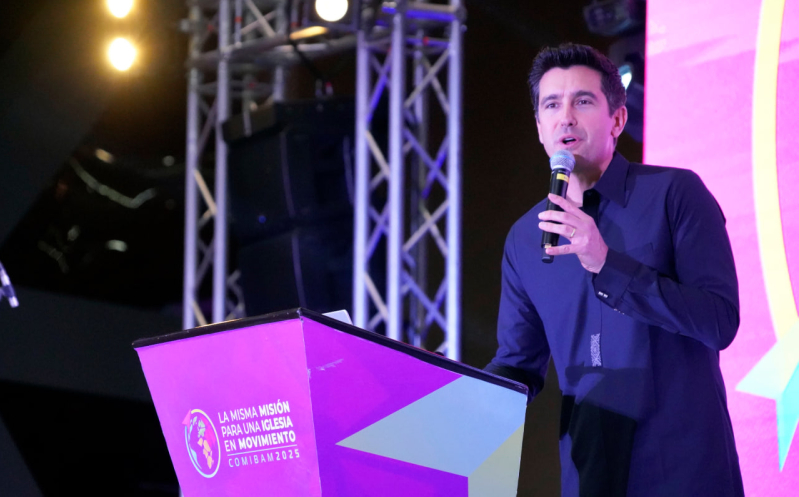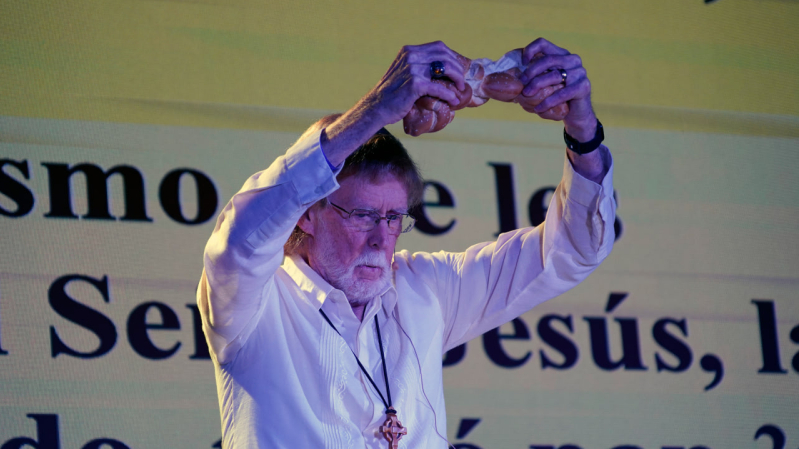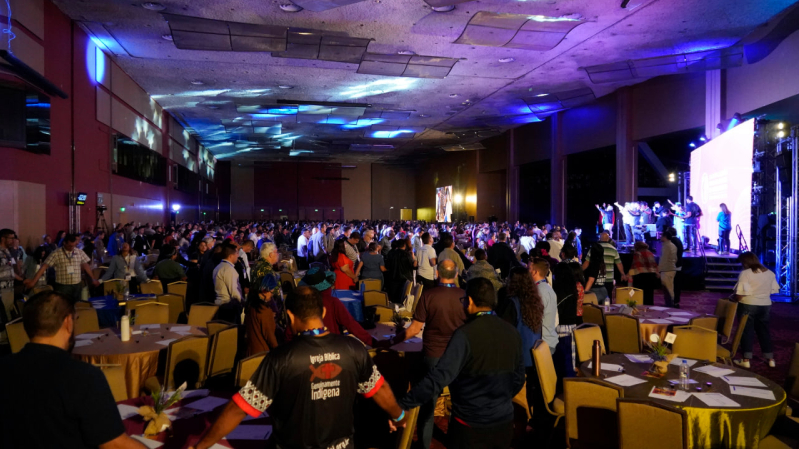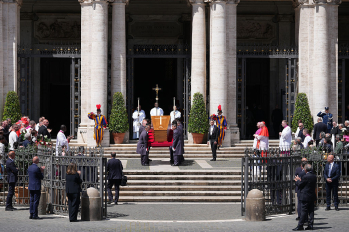
The Ibero-American Missionary Congress COMIBAM 2025 officially concluded Friday night in Panama City, closing four days of activities with a final session focused on gratitude, reflection, and renewed commitment to missions. The closing program included artistic presentations, biblical teachings, liturgical acts, and prayers that symbolically commissioned participants to return to their home countries with a strengthened vision for mission.
Recognition of past leaders and future vision
Cristian Castro, executive director of COMIBAM, opened the evening by thanking former directors and presidents of the movement. His remarks acknowledged the contributions made over nearly four decades of Ibero-American missionary cooperation.
“Thank you for coming, for investing your money, your time, and being part of the movement. We ask forgiveness from one another if something did not turn out as we wanted. But the important thing is that we return home with a flame ignited,” he said.
The cultural segment featured a performance in which individuals dressed as visitors from the future appeared on stage, encouraging attendees to write letters to future generations with advice on continuing God’s mission in a complex world. The presentation was well received by participants.
Helder Favarin emphasizes legacy based on Acts 20
The final plenary session was delivered by Dr. Helder Favarin, Brazilian missionary and CEO of Community Bible Study, who addressed the question, “What kind of legacy are we leaving?” based on Acts 20:17–38.
He organized his message around three key points, which he said characterized the apostle Paul’s legacy and should also guide the church today: integrity, humility, and radical obedience.
“Paul said, ‘You know how I lived the whole time I was with you.’ Our legacy begins here: with a life of integrity,” Favarin said, noting that current cultural trends have normalized practices inconsistent with Christian teaching. “The proper use of money, sexuality, the way we speak… our integrity is a gift to our loved ones.”
Favarin stated that humility is essential for both mission work and a genuine relationship with God. “Only the humble can learn. Humility is what allows us to live in unity in Christ. It reminds us that we are who we are by grace, not by merit,” he said.
He also called for radical obedience, even when it involves hardship. “The idolatry of success is producing thousands of disappointed former believers. God is not here to fulfill our dreams, but He will be with us. And one day He will say, ‘Well done, good and faithful servant.’ Mission includes pain. Let us leave a legacy of radical obedience.”

Celebration of the Lord’s Supper and commissioning prayer
The evening also included the celebration of the Lord’s Supper, led by veteran missiologist Bill Taylor. Participants recited the Apostles’ Creed and read passages from 1 Corinthians. The communion service served as a reminder of the significance of community in mission and symbolically reinforced the theme of being sent into the world.
Pastor Luis Martí of El Salvador led a final commissioning prayer. Participants were invited to join hands across the auditorium in a symbolic act of unity.
“Father, we commission each brother and sister for what you have called them to since before the foundation of the world. Use them with the power of the Holy Spirit. Bless the next generations. Help us to be generous in giving from the abundance we have received,” Martí prayed.

Looking ahead
In his closing remarks, Cristian Castro expressed appreciation to those who attended and outlined a vision for the next decade.
“We are praying for 10,000 new workers and 20,000 new churches to join this movement over the next 10 years. Please continue praying and giving for missions,” he said.
COMIBAM 2025 concluded with an emphasis on challenges ahead but also a continued commitment to participation in global mission. Organizers and participants affirmed a vision of an Ibero-American church engaged in the task of missions, with integrity, humility, and a willingness to persevere through difficulties.
Originally published at Diario Cristiano, Christian Daily International's Spanish edition.





